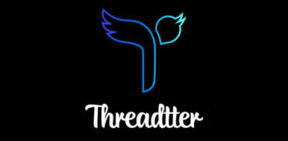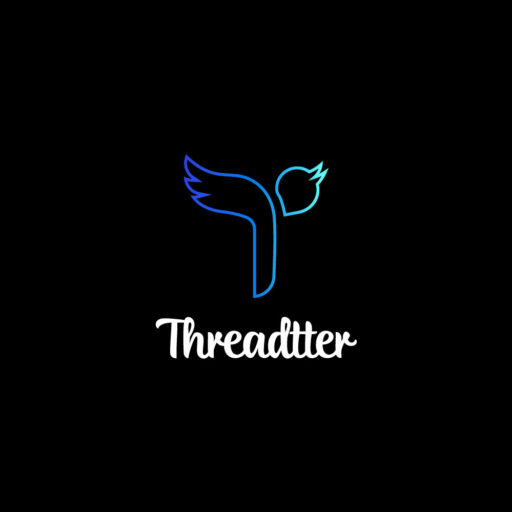When Mark Zuckerberg says, “Buckle up!” it’s more than just a casual remark—it’s a warning shot across the bow of the tech world. As Meta hurtles toward 2025, Zuckerberg’s bold vision for the future of technology is coming into sharper focus. From groundbreaking innovations in virtual reality (VR) and artificial intelligence (AI) to navigating fierce regulatory battles and societal scrutiny, 2025 is shaping up to be a pivotal year for Meta. But what exactly makes Zuckerberg so certain that the upcoming year will be a rollercoaster ride? Let’s dive into the forces at play.
Background & Early Life
Mark Zuckerberg’s journey from a Harvard dorm room to the helm of one of the most influential tech companies in the world is well-documented. Born in 1984 in White Plains, New York, Zuckerberg displayed an early knack for programming. By his teenage years, he had already created “ZuckNet,” a messaging program for his family’s use. His passion for connecting people led to the launch of “The Facebook” in 2004, which quickly transcended its college campus origins to become a global social media powerhouse.
The Rise of Facebook & Meta
Meta’s Right-Wing Shift: Is Zuckerberg Steering Social Media into Political Waters?
Facebook’s meteoric rise in the 2000s revolutionized social networking. With over 2.8 billion active users by 2021, it became a cornerstone of digital communication. However, Zuckerberg’s ambitions didn’t stop there. In 2021, he announced Facebook’s rebranding to Meta, signaling a strategic pivot toward building the metaverse—an immersive virtual world that integrates augmented reality (AR), VR, and AI to create shared digital spaces.
Key Innovations & Business Strategies
Zuckerberg’s approach to innovation is characterized by aggressive acquisitions and heavy investments in emerging technologies. The purchases of Instagram in 2012 and WhatsApp in 2014 fortified Facebook’s dominance in social media. But it’s Meta’s foray into VR and AI that sets the stage for 2025.
Meta’s Cost-Cutting Moves: What Zuckerberg’s Layoffs and DEI Cuts Mean for the Future
- Virtual Reality and the Metaverse: With the development of Oculus VR headsets and Horizon Worlds, Meta is betting big on VR. The company has invested over $36 billion into creating a fully immersive metaverse, envisioning it as the next evolution of the internet. In 2025, we can expect the launch of advanced VR devices and more integrated digital environments that blur the line between the physical and virtual worlds.
Key VR Figures:
| Metric | 2023 | Projected 2025 |
| VR Headset Sales | 8.5 million | 15 million+ |
| Horizon Worlds Active Users | 300,000 | 1.5 million |
| Metaverse Market Value | $47 billion | $100 billion+ |
Artificial Intelligence: Meta’s AI research is pushing the envelope in natural language processing, machine learning, and personalized algorithms. From content moderation to enhancing user engagement, AI is at the heart of Meta’s strategy. In 2025, Zuckerberg anticipates significant breakthroughs in AI that will redefine user experiences and drive new business models.
AI Milestones:
- 60% of content recommendations on Facebook and Instagram are AI-driven.
- Meta’s AI models process over 4 billion translations daily.
- Projected 30% increase in AI-driven ad revenue by 2025.
- Business Strategies: Zuckerberg’s long-term vision includes decentralizing the internet and fostering a creator economy within the metaverse. By providing tools for creators to build and monetize content, Meta aims to establish itself as the foundational platform for digital interaction in the coming decade.
Creator Economy Stats:
- $1 billion pledged to support creators through 2025.
- Over 50 million creators currently using Meta platforms.
- Expected 70% growth in metaverse-based commerce by 2025.
Buckle Up! – Why Mark Zuckerberg Thinks 2025 Will Be a Crazy Year for Meta
Challenges & Controversies
Despite its innovations, Meta faces a gauntlet of challenges. Privacy scandals, such as the Cambridge Analytica debacle, have eroded public trust. The platform’s role in spreading misinformation and its impact on mental health have drawn criticism from regulators and advocacy groups worldwide.
- Regulatory Battles: Governments globally are scrutinizing Meta’s practices, with antitrust lawsuits and calls for stricter data privacy laws threatening the company’s operations. In 2025, Meta will likely face increased pressure to comply with regulatory frameworks that could alter its business model.
Regulatory Snapshot:
- $5 billion FTC fine in 2019 for privacy violations.
- Over 20 active lawsuits related to antitrust and data privacy.
- Projected compliance costs to rise by 25% in 2025.
- Ethical Concerns: The ethical implications of immersive technologies and AI are profound. Issues around data privacy, digital addiction, and the potential for AI-driven manipulation are at the forefront of public discourse.
Ethical Red Flags:
- 65% of users express concerns over data privacy.
- Reports indicate a 30% increase in digital addiction linked to VR platforms.
- AI bias and misinformation flagged in 15% of content moderation cases.
- Internal Challenges: Meta has also grappled with internal dissent, as employees voice concerns over the company’s direction and ethical responsibilities. Balancing innovation with ethical stewardship remains a delicate act for Zuckerberg.
Internal Dynamics:
- Employee satisfaction ratings dropped by 12% in 2023.
- Over 500 employees participated in internal protests over ethical concerns.
The Future of Zuckerberg & Meta
Looking ahead to 2025, Zuckerberg envisions Meta as more than just a social media company—he sees it as the architect of the future digital ecosystem. The success of this vision hinges on Meta’s ability to navigate technological, regulatory, and societal challenges.
- Technological Leap: Expect major advancements in VR hardware, AI capabilities, and metaverse infrastructure. These innovations could redefine how we work, socialize, and entertain ourselves.
Projected Tech Growth:
- 20% annual growth in VR adoption rates.
- Meta’s AI research budget to exceed $12 billion by 2025.
- Regulatory Navigation: Meta’s ability to adapt to regulatory demands will be critical. Transparent data practices and ethical AI deployment could help rebuild public trust.
Regulatory Adaptation Goals:
- Aim for 40% reduction in data privacy complaints.
- Increased transparency reports published quarterly.
- Societal Impact: Zuckerberg’s vision has the potential to reshape societal norms, influencing everything from education to commerce. However, the societal implications of such a shift must be carefully managed to avoid exacerbating digital divides and ethical pitfalls.
Societal Impact Projections:
- 50% of educational institutions expected to integrate metaverse platforms.
- Virtual commerce projected to reach $150 billion by 2025.
Conclusion
As we approach 2025, Mark Zuckerberg’s clarion call to “Buckle up!” reflects the turbulent yet transformative journey ahead for Meta. With groundbreaking innovations on the horizon and formidable challenges looming, 2025 could be the year that defines Zuckerberg’s legacy. Whether Meta will emerge as a pioneer of the next digital frontier or falter under the weight of its ambitions remains to be seen. One thing is certain—the world will be watching.


